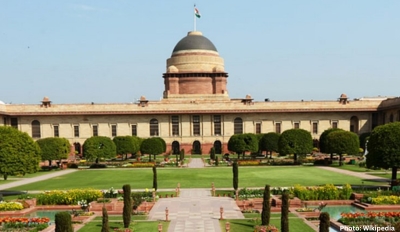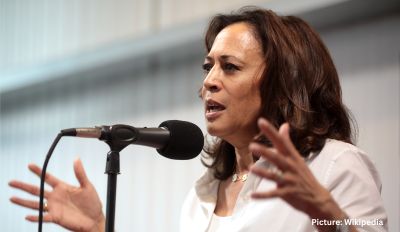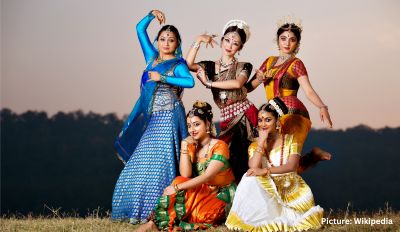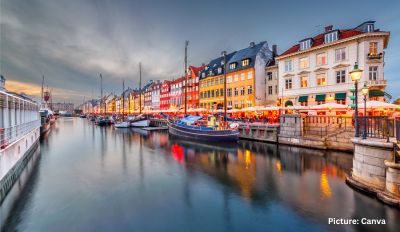“It is against Indian culture” that is what the Supreme Court says now, when activists are debating that it is the right time to push for legalizing homosexuality. Two years back, the government ruled out that same-sex marriages cannot be legalized. But Indian government affirms that according to our culture, “Marriage is the unity of a man and woman.”
Now the question is, what is so specific about Indian culture.
Hinduism is against Homosexuality and is unacceptable to most Hindus. Hinduism teaches that the ‘natural’ thing is for men and women to marry and have children. On the contrary, those who go against this natural relationship are violating their own dharma.Joys
In Sikhism, The Guru Granth Sahib only mentions marriage in relation to a man and a woman forming a spiritual union.
The Quran mentions sex between men several times, in the context of the story of Sodom and Gomorrah, in which some city inhabitants demand sexual access to the messengers sent by God to the prophet Lot. God destroyed Sodom and Gomorrah for their sin and perversions; hence it is ‘Haram,’ Islam has for centuries been much more tolerant than Christianity.
The biblical emphasis upon the loving union of male and female, as an integral part of God’s creation ordinance, establishing family only by a man and woman.
Even Rituparna Borah, co-director of Nazariya Queer Feminist Resource Group, remarked, “There are so many differences in how people live across the country.”
Indian Supreme Court has made it clear that it is neither possible nor practical to call one person a husband and the other a wife in same-sex marriage. India’s solicitor general is staunchly against the legalization of same-sex marriage. As per Delhi High Court in September, “our laws, our legal system, our society, and our values do not recognize the marriage, which is a sacrament, between same-sex couples.”
When the Indian government talks about our culture, they are definitely referring to the good old Hindu upper-caste culture. This particular petition is not challenging Hinduism. In fact, it helps to glorify the fact that Hinduism allows so many weird relationships according to Hindu mythology. The sculptures at Ellora caves, Khajuraho, and Konarak temples may be exceptions, but they reveal so much of the erotic relationships of Indian community in the ancestral days!
On the issue of same sex marriages Wikipedia clarifies with a bit of history “Same-sex marriages are not legally recognized in India nor are same-sex couples offered limited rights such as a civil union or a domestic partnership. On the contrary in 2011, a Haryana court granted legal recognition to a same-sex marriage involving two women. After marrying, the couple began to receive threats from friends and relatives in their village. The couple eventually won family approval”.
Off late in October 2020, two women, Kavita Arora and Ankita Khanna submitted a petition in a Delhi court for their constitutional right to marry. They arguing that without official recognition, they are “strangers in law.”
Several same-sex marriage petitions are pending with different levels of judiciary courts. Whereas On 12 June 2020, the Uttarakhand High Court acknowledged that even though same-sex marriage may be illegal, cohabitation and “live-in relationships” are protected by the law.
Yet in approval to a petition filed in the Delhi High Court by a same sex couple requesting to legalize gay marriage, Solicitor General Tushar Mehta representing the Indian Government affirmed that same sex marriage is against Indian culture – that is the latest update on the same sex marriage issues in India.
The government has affirmed that it is neither possible nor practical to call one person a husband and the other a wife in same-sex marriage. The affidavit states that this will lead to many legal issues.
The affidavit was filed by the Central Government in a High Court notice seeking permission for same-sex marriage under the Hindu Marriage Act. The court will reconsider the petition in April. “Living together as partners and having sex with a person of the same sex cannot be compared to the Indian family concept of husband, wife and children, ”the Center said.
Plaintiffs cannot claim same-sex marriage as a fundamental right. The Center also said that registering same-sex marriages violates existing legal provisions .’ Parliament has designed and framed marriage laws in a country governed by individual laws relating to different religions’ customs. These laws only acknowledge a man’s unity with a woman that provides legal permission through religious permission. Any intervention in this regard will completely upset the delicate balance of individual laws in the country,” the affidavit said. India’s solicitor general has taken a stance against the legalization of same-sex marriage.
“There are so many notable LGBTQ personalities in India. The acronym LGBTQ describes the lesbian, gay, bisexual, transgender, queer community.
India’s LGBTQ community is not focused on marriage equality right now. What they want is acceptance from their families, communities, and society. It is not their fault or decision, but they are born like that; others should not discriminate against them.
Hence the case and the counter affidavit by the government attracted much relevance now. The plaintiffs cannot claim same-sex marriage as a fundamental right. The Center also said that registering same-sex marriages violates existing legal provisions .’’Indian Parliament has designed and framed marriage laws in a country governed by individual laws relating to different religions’ customs. Any intervention in this regard will completely upset the delicate balance of particular rules in the country,” the affidavit said.
In a country with so many religions of very conservative customs and faith prevail, the court has a Herculean task to manage the already sensitive issue of same-sex marriage and redressing the grievances of the LGBTQ activists in the long run.











